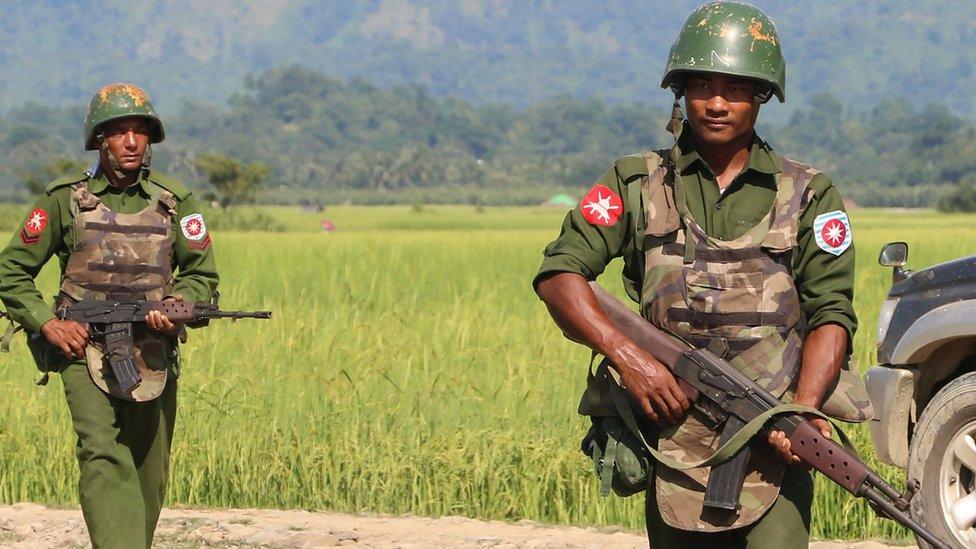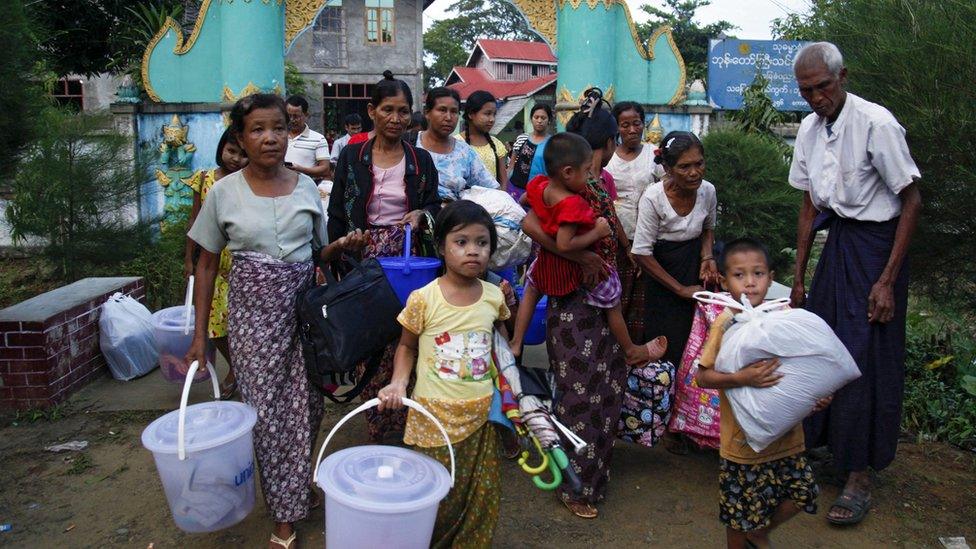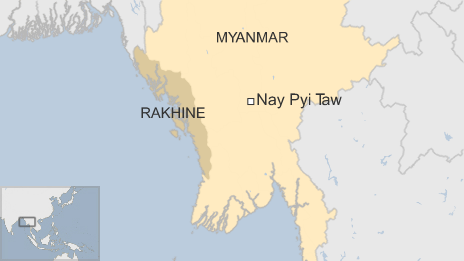Myanmar army kills 25 in Rohingya villages
- Published

The Myanmar army launched attacks on Rohingya Muslim villages over the weekend (Photo from October)
The Myanmar army says it shot dead at least 25 people in Rohingya Muslim villages in restive Rakhine state on Sunday.
It said the people killed had been armed with machetes and wooden clubs.
On Saturday, the army launched attacks with helicopter gunships on Rohingya villages in Rakhine. Eight people, including two soldiers, died.
The attacks were "clearance operations" targeting armed militants, the army said.
Images and videos on social media showed women and children were among those killed.
Hundreds of villagers were forced to flee their homes over the weekend.

Analysis by Jonah Fisher, BBC News, Yangon

The Rohingya population has been displaced ever since ethnic tension escalated in Myanmar
There's no independent media access to northern Rakhine State, so the official accounts must be read critically.
If you're to believe the army version you have to accept that Rohingya men armed only with "wooden clubs and machetes" would launch attacks on soldiers equipped with guns.
You also have to accept the idea that the Rohingya are setting fire to their own homes, making themselves intentionally homeless.
State media report that the Rohingya torched 130 homes on Sunday in order to "cause misunderstanding and tension" and get international aid.
There's a very different narrative on Rohingya social media. Again it should be viewed critically, in the past the Rohingya have exaggerated alleged atrocities.
The Rohingya images and videos from this last weekend show dead women and children and people fleeing burning homes. Helicopter gunships fly overhead. Some of it is certainly genuine.
The security forces in Rakhine are controlled by the army not the country's de-facto leader Aung San Suu Kyi.
But the former Nobel peace prize winner is conspicuously silent. So far she's refused diplomats' demands for a credible independent investigation into events.

Rakhine has been under military lockdown since last month, after nine policemen were killed by insurgents in a series of attacks on border posts.

The state is home to more than a million Rohingya Muslims, who are not recognised as Myanmar citizens.
Tens of thousands are living in temporary camps, after being displaced during fighting with majority Buddhists in 2012 which left scores dead.
The Rohingya are disliked by many in Myanmar, who consider them illegal immigrants from Bangladesh, despite many having lived in the country for generations.
Rights groups say the Rohingya population has been subject to severe restrictions on movement and are denied the most basic of human rights.